Uncategorized
Glencore-Teck deal reveals the irony of coal: Profitable and vital, yet endlessly shunned
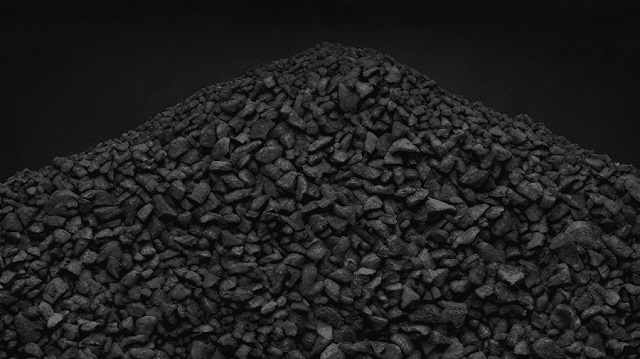
From the MacDonald Laurier Institute
By Heather Exner-Pirot
Coal is not going anywhere, and while some countries will benefit, Canada will not be among them
In many ways, the US$8.9-billion deal Glencore has struck for Teck Resources’ coal assets represents an elegant split that plays to each company’s strengths.
Teck, the Canadian miner, can now focus on its core base metals business, in particular copper, as it bets on strong returns in the years to come. Swiss commodities giant Glencore can build up its coal empire, adding the steelmaking coal assets to its vast thermal coal trade.
But the deal also reveals how coal has its own set of rules. Despite how profitable and strategic Teck’s coal resources are, they will soon come under foreign control. It is hard to imagine this unfolding the same way for any other commodity.
Coal is an essential, ubiquitous material. It is the workhorse of the global power sector, accounting for more than a third of global electricity generation. And it is indispensable in steelmaking. The burning of coke, a coal-based fuel, produces the carbon monoxide needed to convert iron ore into a liquid, alongside high temperatures. The majority of steel in the world is made with coking coal, also known as metallurgical coal.
Owing to its carbon intensity, it has a terrible reputation. Investors and shareholders, not to mention Western governments, shun it. Teck’s intention to spin off its coal business is linked to shareholder desires to see a decoupling of its metals and coal businesses out of environmental concerns, which have weighed on its valuation. Even as it pursues Teck’s coal assets, Glencore is doing the same; it plans to separate its metals and coal businesses within two years and sought Teck’s premium steelmaking coal to make its other coal holdings more palatable.
But shareholder distaste for coal is increasingly divorced from its economics. Coal is still highly profitable. Last year witnessed high prices and record demand, in part owing to the fallout from the Russian invasion of Ukraine. Both Teck and Glencore benefited greatly. Teck earned record profits of $4.9-billion, with coal accounting for 75 per cent of that. Glencore’s core profit rose 60 per cent to a record US$34.1-billion, more than half of which came from coal production.
Teck’s steelmaking coal assets in B.C.’s Elk Valley are world-class – high-quality, with decades of reserves and a low carbon intensity relative to other deposits. Glencore’s deal for them will see it partnering with Japan’s Nippon Steel and South Korea’s PISCO, who will take minority stakes. The fact that the deal includes two of the world’s biggest steel producers is evidence that these coal assets have long-term customers. This deal is not about Teck unloading a bad asset; it is about removing the ESG noose around its neck.
That’s poor justification for letting such vital assets end up in foreign hands. Yet the federal government will likely let the deal happen.
Federal scrutiny of foreign investment and takeovers in our domestic mining sector has grown of late, as the need for friendly sources of critical minerals grows. As The Globe and Mail reported last month, Canadian firms have mainly been the targets, rather than pursuers, of acquisitions in the sector in the past decade. Canada has toughened the Investment Canada Act as a result.
While the Teck-Glencore deal will raise similar concerns, it has been designed to skirt them. Teck’s news release could have been written by Ottawa. It aligns with the federal government’s recent Critical Minerals Strategy and commits to remaining a Canadian-based miner focused on “future-oriented metals,” “an electric vehicle battery recycling facility” and support for “junior Canadian mining and exploration companies.” It also preserves B.C.’s coal mining jobs and revenues.
There’s a parallel universe where a G7 country protects its most exquisite metallurgical coal deposit, required to produce a critical material for any advanced economy, energy system or military. That introduces policy to reshore and build up its domestic steel industry in an era of growing geopolitical turbulence.
The world in 2023 is not this place. And Canada is not that G7 country. Indeed, the world view of the current federal and B.C. governments sees the decline of coal as both imminent and necessary. There is no way they will make the argument that the material is a strategic resource that must remain under Canadian ownership.
But coal is not going anywhere. Some countries will benefit, economically and strategically, from controlling it. Canada will not be among them.
Heather Exner-Pirot is the director of energy, natural resources and environment at the Macdonald-Laurier Institute.
Uncategorized
RCMP recruitment failure has Alberta advocacy group calling for Provincial Police Service

News release from Free Alberta Strategy (A Strong And Sovereign Alberta Within Canada)
“Make no mistake, we are paying for these services that we aren’t receiving. Alberta’s taxpayers are paying tens of millions of dollars for nearly 400 vacant RCMP officer positions – for boots that are not on the ground.”
A recent report from the Royal Canadian Mounted Police (RCMP)’s independent Management Advisory Board had findings that are nothing short of alarming:
“Federal policing has now arrived at a critical juncture of its sustainability, which present risks for the national security and safety of Canada, its people, and its interests,” says the report.
After over a year of diligent study, the Board has been tirelessly firing off flares, signalling to all who will listen: the very foundation of our national public safety apparatus may be at risk of faltering.
This is doubly problematic because, as you well know, the RCMP is also responsible for boots-on-the-ground policing in large parts of the country, including many rural and remote areas – including in Alberta.
Rural crime has been a longstanding issue in Alberta, and social disorder continues to make headlines nightly.
Alberta Minister of Public Safety, Mike Ellis, took to social media platform X (formerly known as Twitter) to express his opinion:
“The independent report finds the RCMP has struggled in recent years to recruit and retain regular members, a problem that’s particularly acute in federal policing. This is not about the hard-working men and women on the frontline: they are doing everything they can. The reality is the RCMP do not have enough officers to police communities in Canada effectively.”
Ellis has been ahead of this story for months now.
In March, Ellis stated that:
“… on average, Alberta has an RCMP officer vacancy rate of 20 per cent. This means that Alberta is only being served by 1,522 of the 1,911 RCMP officers that the federal government has authorized for Alberta.”
“Make no mistake, we are paying for these services that we aren’t receiving. Alberta’s taxpayers are paying tens of millions of dollars for nearly 400 vacant RCMP officer positions – for boots that are not on the ground.”
The consequences of this capacity crisis are far-reaching.
Not only does it jeopardize the safety of Albertans, but it also undermines the credibility of Canada’s federal police force on the international stage.
With limited resources and personnel, the RCMP’s ability to address pressing national and global security concerns is severely compromised.
The Management Advisory Board, created in 2019 by the federal government to provide external advice to the RCMP commissioner, set up a task force in the fall of 2022 to study the federal policing program.
Overall, the report says budget and personnel shortfalls have left the RCMP “operationally limited,” restricting the number of cases it can take on annually.
Here are some more highlights from the report:
“Canada and its people have already begun to see the repercussions of the federal policing program being stretched thin.”
“Federal policing’s overall eroding capacity may have implications for the credibility of Canada’s federal police force and its investigations on the international stage.”
“Ultimately, this may influence Canada’s overall approach and standing in international politics, including its ability to advance global priorities.”
Clearly, we cannot afford to wait any longer.
Municipalities can ease the burden on our national security services by establishing municipal policing.
Several cities in Alberta already have their own police authorities, and the provincial government is providing funding for others interested in exploring this option.
Grande Prairie is already in the process of establishing their own municipal police service.
No word on how many other municipalities have taken the government up on their offer.
Unfortunately, President of Alberta Municipalities Tyler Gandam (also Mayor of Wetaskiwin) is featured prominently on the National Police Federation’s “Keep Alberta RCMP” website.
Interestingly, the Keep Alberta RCMP website doesn’t mention the fact that the advisory board even exists.
It doesn’t mention the report.
The notion that our federal policing infrastructure teeters on the brink of instability while Gandam appears to be asleep at the wheel, is deeply disconcerting.
The safety and security of Albertans must remain our top priority.
We cannot afford to wait any longer.
The time has come for the province to take swift and decisive measures to bolster policing capabilities in Alberta.
It’s time for Alberta to seriously consider the establishment of an Alberta Provincial Police Service.
It has been one of the core tenets of the Free Alberta Strategy.
If you agree, please reach out to your municipality and ask them to take steps to protect your community.
Together, we can keep Alberta safe.
Regards,
The Free Alberta Strategy Team
P.S. We’re hoping you’ll consider contributing to our cause. Your generous donation helps us make a positive impact in our community. No need to worry about any hold-ups or threats here. We’re just passionate about making a difference, and your support goes a long way in helping us achieve our goals.
Uncategorized
Making Alberta a geothermal energy leader

Eavor announces it’s the #1 geothermal energy startup company in the world – January 2024
Alberta is creating Canada’s first geothermal test site to advance drilling innovation, reduce emissions and create jobs.
Geothermal energy uses naturally occurring heat within the earth to heat water and buildings and generate power, with few emissions or environmental impacts. Alberta has vast pockets of heat below ground, making the province Canada’s geothermal leader, but testing and developing new technologies can be a barrier for many companies. Unlike the United States, Japan and other countries, Canada does not currently have an open-access test site to help spur innovation.
Alberta is taking the first steps to create a new Alberta Drilling Accelerator. This groundbreaking facility would be the first of its kind in Canada, establishing Alberta as a global hub for geothermal technology. This will drive new innovations in geothermal and other clean energy projects that can reduce emissions and power communities around the world.
To kick-start the project, the Alberta government is investing $750,000 to conduct a feasibility study led by Calgary-based Eavor Technologies and other stakeholders. The study is the first step in assessing the proposed facility. It will include identifying a site, business planning, research on the governance model, an economic impact analysis and stakeholder engagement that will lay the groundwork for the initial planning stages of the project.
“Alberta has been a global energy leader for more than a century, renowned for our skilled workforce, innovation and one of the largest oil and gas reserves on the planet. The proposed Alberta Drilling Accelerator presents enormous potential to help our province lead the next wave of energy projects here at home and around the world that reduce emissions, create jobs and enhance energy security.”
The Alberta Drilling Accelerator would help companies test out and develop new geothermal drilling techniques or technologies to reduce emissions and drive growth across the clean energy sector. It would be an open-access, technology-agnostic drilling test facility capable of drilling in challenging environments, including deep depths, high temperatures and different rock types.
The accelerator also would help speed up the development of carbon capture, utilization and storage; helium; critical minerals; and other clean technologies and commodities that rely on Alberta’s drilling sector. All of this helps attract investment and bring new technologies to scale in Canada.
“With cumulative geothermal investment poised to reach $1 trillion by 2050, a geothermal arms race is very much underway to commercialize novel drilling techniques that accelerate geothermal development – exhibited by testing facilities in the United States, China and Iceland. As Canada’s first geothermal test bed, the Alberta Drilling Accelerator will help bring geothermal technologies to scale, supporting companies like Eavor. We commend the Government of Alberta for this bold initiative.”
“We are proud to witness Eavor, a CDL-Rockies alumni company, create new opportunities for innovators like themselves to advance the adoption of energy transition technologies like geothermal. The Alberta Drilling Accelerator will further solidify Alberta’s position as a leader in the global sustainable energy landscape.”
If the feasibility study shows the facility is economically and environmentally viable, and if the project is approved by the Alberta government, the facility will start taking shape at the selected site and drilling could start as early as 2025.
“Canada is home to the most advanced drilling technology in the world. Not only do our members support the responsible development of oil and gas, but we are integral in the extraction of new energy resources like geothermal and critical minerals. Our workers are at the epicentre of Canada’s energy transformation. Our people, technology and processes are leading the way towards a more diverse energy future. The Alberta Drilling Accelerator is a government-enabled policy approach to expand Alberta’s drilling capacity and reach its full potential as the world’s most diverse and technologically advanced producer and exporter of sustainable energy and critical minerals.”
“The Alberta Drilling Accelerator is a testament to Alberta’s innovative and entrepreneurial spirit. Leveraging our oil and gas sector expertise, Alberta is poised to become the global leader in developing new geothermal technologies that will play an integral role in reducing emissions while supporting job creation.”
Quick facts
- The Canadian Association of Energy Contractors estimates that one active drilling rig, whether drilling for natural gas or geothermal, creates approximately 220 direct and indirect jobs and
$1 million in tax revenue. - In 2019, Eavor received $2 million in provincial funding through Emissions Reduction Alberta and Alberta Innovates for the world’s first closed-loop geothermal system.
Related information
-
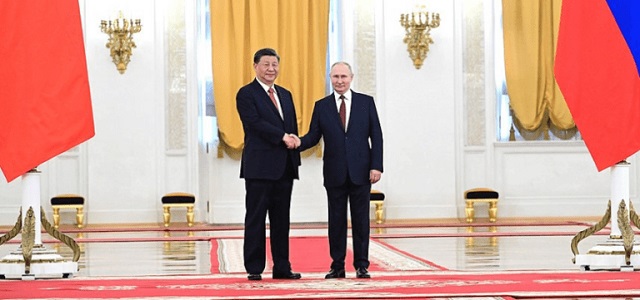
 Agriculture1 day ago
Agriculture1 day agoThe China – Russia “Grain Entente” – what is at stake for Canada and its allies?
-
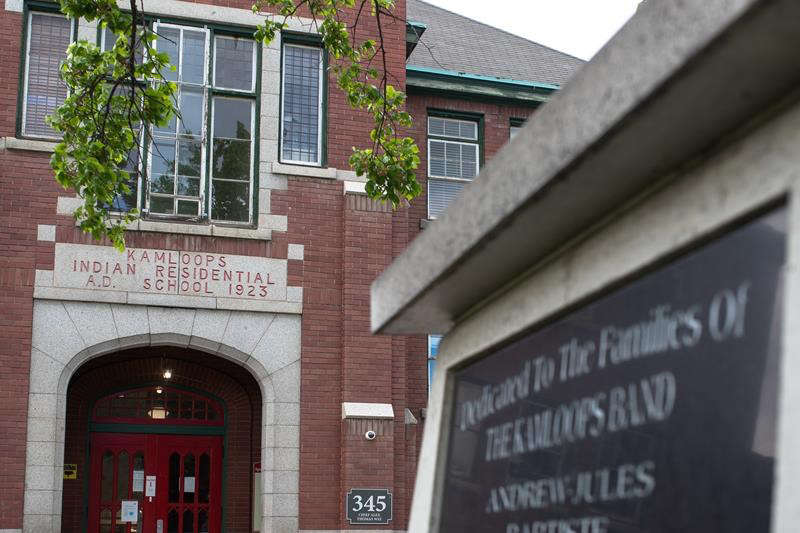
 Indigenous9 hours ago
Indigenous9 hours agoNo accounts on $7.9 million dollar ‘Truth’ Fund
-
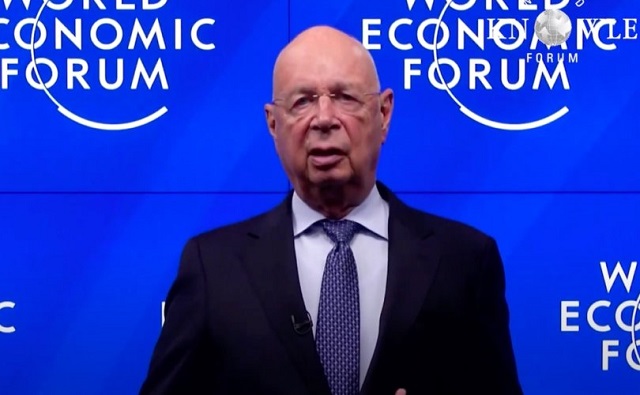
 Great Reset1 day ago
Great Reset1 day agoDr. Robert Malone reacts to Klaus Schwab’s resignation: ‘Resistance is not futile’
-

 Bruce Dowbiggin1 day ago
Bruce Dowbiggin1 day agoThe Most Dangerous Man In Canada: Emmanuel Goldstein Reborn
-

 Automotive2 days ago
Automotive2 days agoEV transition stalls despite government mandates and billion-dollar handouts
-

 Fraser Institute6 hours ago
Fraser Institute6 hours agoFederal government should have taken own advice about debt accumulation
-
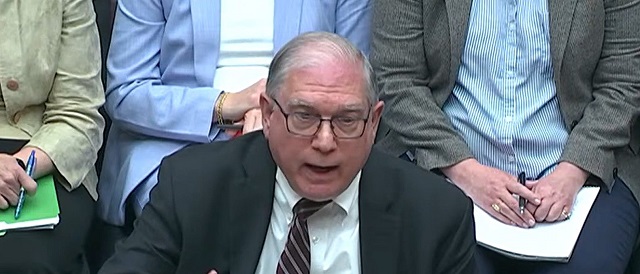
 COVID-1917 hours ago
COVID-1917 hours agoHouse COVID Committee Confirms What We Have Long Suspected — The Feds Really Hate Transparency
-

 Health17 hours ago
Health17 hours agoUniversity of Toronto Study Finds Teen Marijuana Use Tied To Dramatic Increased Risk Of Psychosis







